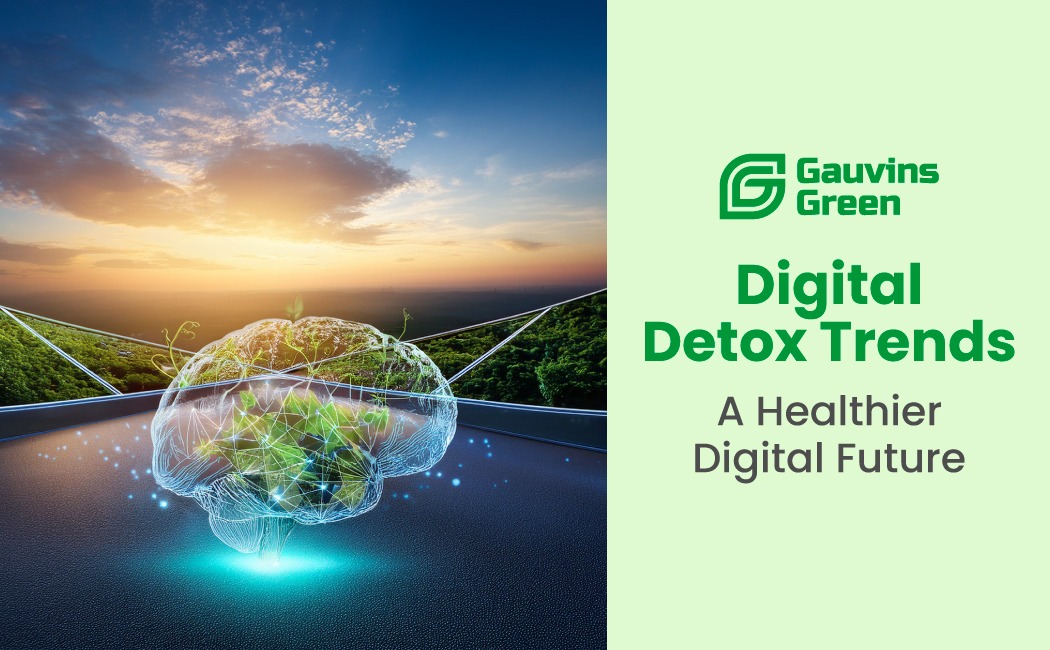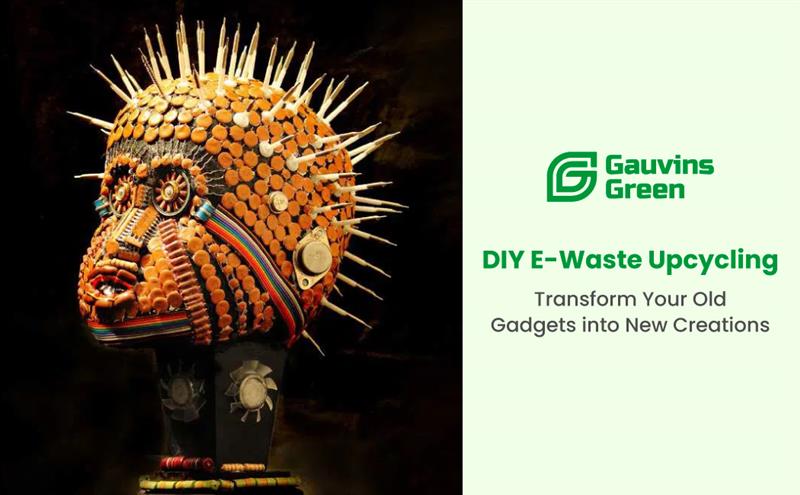Today’s fast-paced, connected world makes digital detoxes increasingly popular. The desire to unplug, reset, and revitalize increases along with our technology. More and more people are seeking ways to manage screen time and foster healthier relationships with their devices. While digital tools offer convenience and connectivity, their overuse has led to growing concerns about mental well-being. This rise in awareness has also pushed for a broader discussion on the intersection of environmental sustainability, particularly concerning e-waste management and the recycling management of electronic devices.
The Rising Need for Digital Detox
With technology driving in almost every aspect of modern life, our screen time has risen. The digital world grabs much of our attention from work, social media, or entertainment sectors. However, this constant engagement comes with consequences: increased stress, reduced focus, sleep disturbances, and a lack of balance in life. The urgency to address these issues has led to the widespread adoption of practices.
Beyond personal health, digital overuse also has broader environmental implications. The more devices we use, the more we contribute to electronic waste. A proactive approach to digital wellness must consider both mental well-being and the need for responsible e-waste management. Reducing device dependency can minimize our contribution to the growing issue of electronic waste.
Current Trends in Digital Detox
Several trends are emerging in the space that are reshaping how we think about screen time and its impact on both our lives and the planet:
Digital Minimalism
Digital minimalism, one of the most well-liked strategies, focuses on only the most necessary technology and purposefully minimizes the number of devices and apps used. By following this trend, users can avoid the need to Enhance their devices frequently, cut down on screen time, and limit e-waste and distractions.
Tech-Free Zones
More effective strategy for control technology effects is creating off-limits spaces in the home or workplace. For example, having a phone-free bedroom or a tech-free dining room inspires face-to-face interaction and helps reduce our reliance on digital devices.
Scheduled Detox Days
This trend encourages setting aside specific times or entire days where no technology is used. These tech-free intervals help reset mental focus and reduce screen fatigue. From a sustainability perspective, embracing these detox days may extend the lifespan of devices, ultimately reducing the need for frequent replacements and helping manage electronic waste.
Wellness Apps and Platforms
Paradoxically, while equipment overload is the issue, tech-based solutions are also emerging. Apps that help users track their screen time and promote mindfulness are on the rise, with platforms like Headspace and Calm leading the way. These wellness tools are guiding users toward healthier digital habits, indirectly contributing to a reduction in electronic waste by inspiring users to consume technology responsibly.
Wearable Tech for Wellness
Devices that monitor physical and mental health are evolving to include features that promote. Wearables can track how much time we spend on our phones and suggest breaks, helping users manage their relationship with technology while also reducing environmental impacts associated with excessive device use.
Predictions for the Future of Digital Detox
Looking ahead, several predictions point to a future where practices will become more ingrained in our daily lives:
Rise of Tech-Less Retreats
The future may see a surge in wellness retreats that offer complete disconnection from technology. These experiences provide an opportunity for people to reset their relationship with technology while simultaneously reducing their carbon footprint and lessening the generation of electronic waste during such unplugged periods.
AI-Assisted Detox Tools
Artificial Intelligence is poised to play a key role in management. Future AI-powered apps will be able to monitor user behavior and recommend breaks from technology. These apps will not only promote healthier digital habits but could also encourage more responsible device use, thereby supporting e-waste management efforts.
Corporate Digital Wellness Programs
As the impact of digital fatigue becomes more evident, businesses may start incorporating digital/tech detox initiatives into their employee wellness programs. This shift could lead to healthier work environments and less dependence on constantly upgrading tech tools, reducing the contribution of organizations to electronic waste.
Smart Gadgets for Digital Detox
As more people holds digital detox, we can expect to see the rise of smart gadgets that help set screen time. These gadgets force automatically lock devices after a set amount of usage or prompt users to take breaks, indirectly supporting e-waste management by helping individuals prolong the life of their electronic products.
Government Regulations and Corporate Responsibility
With growing awareness of both mental health and environmental issues, we may see governments and businesses introduce regulations and policies to mandate breaks. This might include screen time limits in schools, companies promoting initiatives, or legislation aimed at responsible recycling management of electronic products.
Impact of Digital Detox on Mental Health
The mental health benefits of a digital detox are well-documented. Reduced screen time can lead to improved focus, better sleep, reduced anxiety, and stronger personal connections. Studies show that people who take regular tech breaks report feeling more in control of their time and less overwhelmed by digital noise. When people disconnect, they also engage more in physical activities and real-life interactions, further contributing to overall well-being.
On a broader scale, this digital mindfulness directly impacts our consumption habits. With fewer devices in use or upgrades, we can significantly reduce the generation of electronic waste, contributing to a cleaner, healthier planet.
How Businesses Are Adapting to Digital Detox Trends
Many businesses are already adapting and changing their strategies to support digital detox and e-waste management trends. For example, more known brands like Apple and Samsung are offering tools that help their customers and users monitor and control screen time. Other one is most of the businesses are focusing on creating more eco-friendly device designs, improving recycling management, and introducing take-back or disclaim programs that allow consumers to return old devices for proper disposal or reuse.
Challenges and Barriers to Effective Digital Detox
If is possibility to clear all the benefits of Digital Detaox, so there are also challenges. Digital Addiction to work, education, and entertainment makes it difficult for many people to disconnect fully. The fear of missing out (FOMO) on social media also discourages people from embracing a tech-free lifestyle.
Moreover, the drive for convenience often results in frequent device upgrades, further exacerbating the electronic waste problem. Overcoming these challenges requires a combination of personal discipline and systemic changes in how we view and use technology.
Gauvins Green’s Role in Digital Detox
At Gauvins Green, we recognize the intertwined nature of digital consumption and environmental responsibility. Our mission aligns with promoting a healthier digital lifestyle by advocating for e-waste management and responsible recycling management of electronics. By offering sustainable solutions to electronic waste, we help individuals and businesses contribute to a cleaner planet while supporting a more mindful approach to technology use.
Conclusion
The future of digital detox carries some exciting possibilities for a healthier relationship with technology. As we continue to see the balance in our digital lives, the benefits will extend beyond personal well-being to include a more sustainable approach to technology and e-waste management. Embracing digital awareness will not only enhance our mental health but also play a key role in reducing the environmental impact of our digital footprint.



